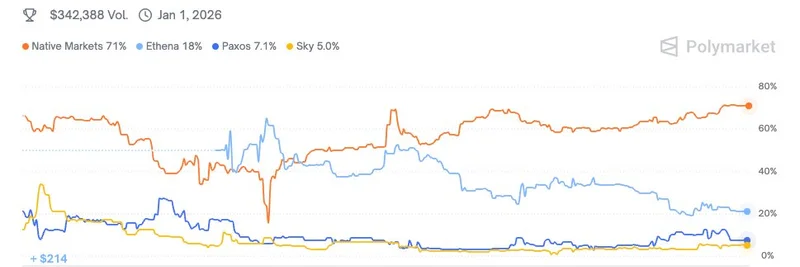If you've been following the latest buzz in the crypto world, especially around decentralized finance (DeFi) and governance, you might have caught wind of a heated discussion on X (formerly Twitter). Haseeb Qureshi, managing partner at Dragonfly Capital and a well-known voice in the venture capital space, dropped a bombshell thread about Hyperliquid's USDH stablecoin Request for Proposal (RFP). For those not in the loop, Hyperliquid is a high-performance layer-1 blockchain that's gaining traction for its perpetual futures trading platform, and USDH is their upcoming native stablecoin aimed at stabilizing trades on the network.
In his thread (view the original post here), Haseeb suggests the whole RFP process might be rigged in favor of Native Markets, a newcomer, while sidelining established players like Ethena, Paxos, and Agora. This has sparked a massive debate in the community, with implications that could ripple into the meme token ecosystem—after all, stablecoins like USDH are crucial for trading volatile assets like memes without the hassle of fiat on-ramps.
Let's break it down step by step, starting with what Haseeb had to say.
Haseeb kicked things off by expressing his frustration: "Starting to feel like the USDH RFP was a bit of a farce." He claims he's heard from multiple bidders that Hyperliquid's validators—key players in the network's liquid democracy system, where stakers delegate voting power—are only entertaining Native Markets. It feels like a "backroom deal," he says, pointing out how Native Markets dropped their proposal almost instantly after the RFP announcement, while others hustled over the weekend to catch up.
He contrasts this with community sentiment, which seems to lean toward battle-tested issuers like Ethena (known for their synthetic dollar USDe), Paxos (a regulated stablecoin veteran), and Agora (another strong contender). To back it up, Haseeb shared a screenshot from Polymarket, a prediction market platform, showing Ethena's odds spiking then crashing as rumors spread that validators weren't biting.
The thread didn't stop there. Haseeb followed up with anonymous quotes from bidders who felt the process was "fixed" for Native Markets, fearing backlash if they spoke out. He emphasized that he's not bag-biased (though Dragonfly has stakes in several involved parties, including Ethena and Hyperliquid's $HYPE token), but rather concerned about fair governance.
The community response was swift and divided. Some, like @Keisan_Crypto, pushed back hard, arguing the process has been transparent and that Native Markets offers better long-term alignment for Hyperliquid. They pointed out hours spent in Telegram groups debating proposals, with initial favoritism toward Paxos shifting after Native's detailed pitch. Others, like @CL207, highlighted trust in Native Markets' founder Max Fiege for his alignment with the ecosystem.
Critics accused Haseeb of undisclosed biases, but he clapped back, noting Dragonfly's broad portfolio and stressing the need for validators to truly represent delegators. One user, @wsbmod, reminded everyone that it's ultimately up to stakers, not just validators, and shared a poll from a Hyperliquid whale group favoring Native Markets.
@GuthixHL chimed in from validator chats, saying discussions were open and sentiment organically shifted toward Native after their strong proposal. Meanwhile, @poorlydrNFT quipped about sidelined $HYPE holders, underscoring the tension between community voices and governance mechanics.
This drama highlights a bigger issue in crypto: how do decentralized networks handle big decisions like choosing a stablecoin issuer? Hyperliquid's liquid staking model is innovative, but if validators aren't responsive, it could erode trust. For meme token enthusiasts, this matters because a robust stablecoin like USDH could supercharge trading on Hyperliquid. Meme coins thrive on liquidity and low-friction trades—imagine pairing your favorite dog-themed token with a native stable without bridging headaches. But if the RFP feels unfair, it might spawn meme-worthy backlash or even new tokens mocking the process.
As a former CoinDesk editor, I've seen my share of governance squabbles, and this one feels like a stress test for Hyperliquid's model. Will validators pivot based on community feedback? Or will Native Markets seal the deal? Keep an eye on Polymarket and Hyperliquid's forums for updates. In the meantime, if you're building or trading memes on blockchain, stories like this remind us why transparent processes are key to a healthy ecosystem.
What do you think—fair play or foul? Drop your thoughts in the comments below, and stay tuned to Meme Insider for more breakdowns on how crypto news intersects with the wild world of meme tokens.



